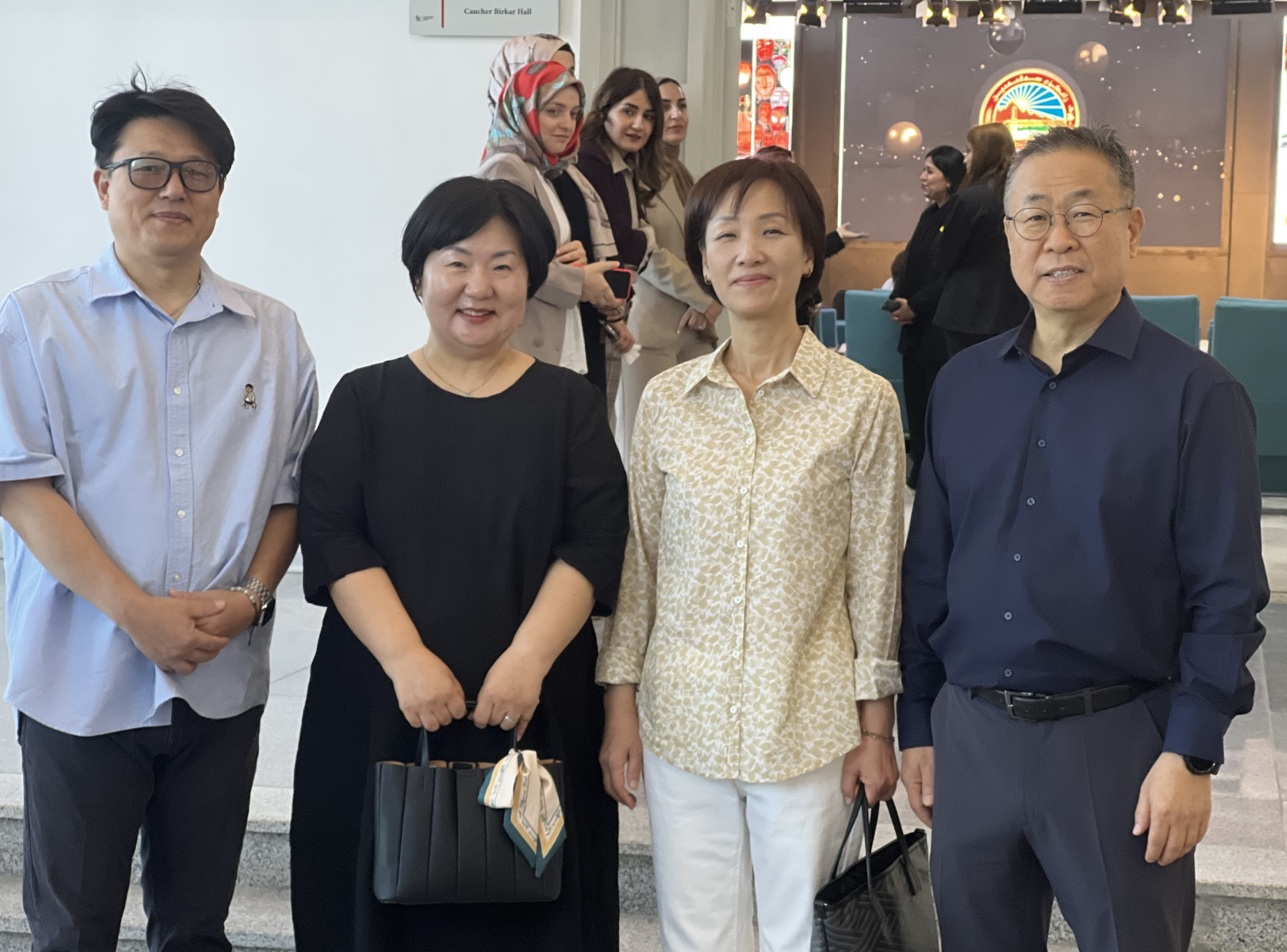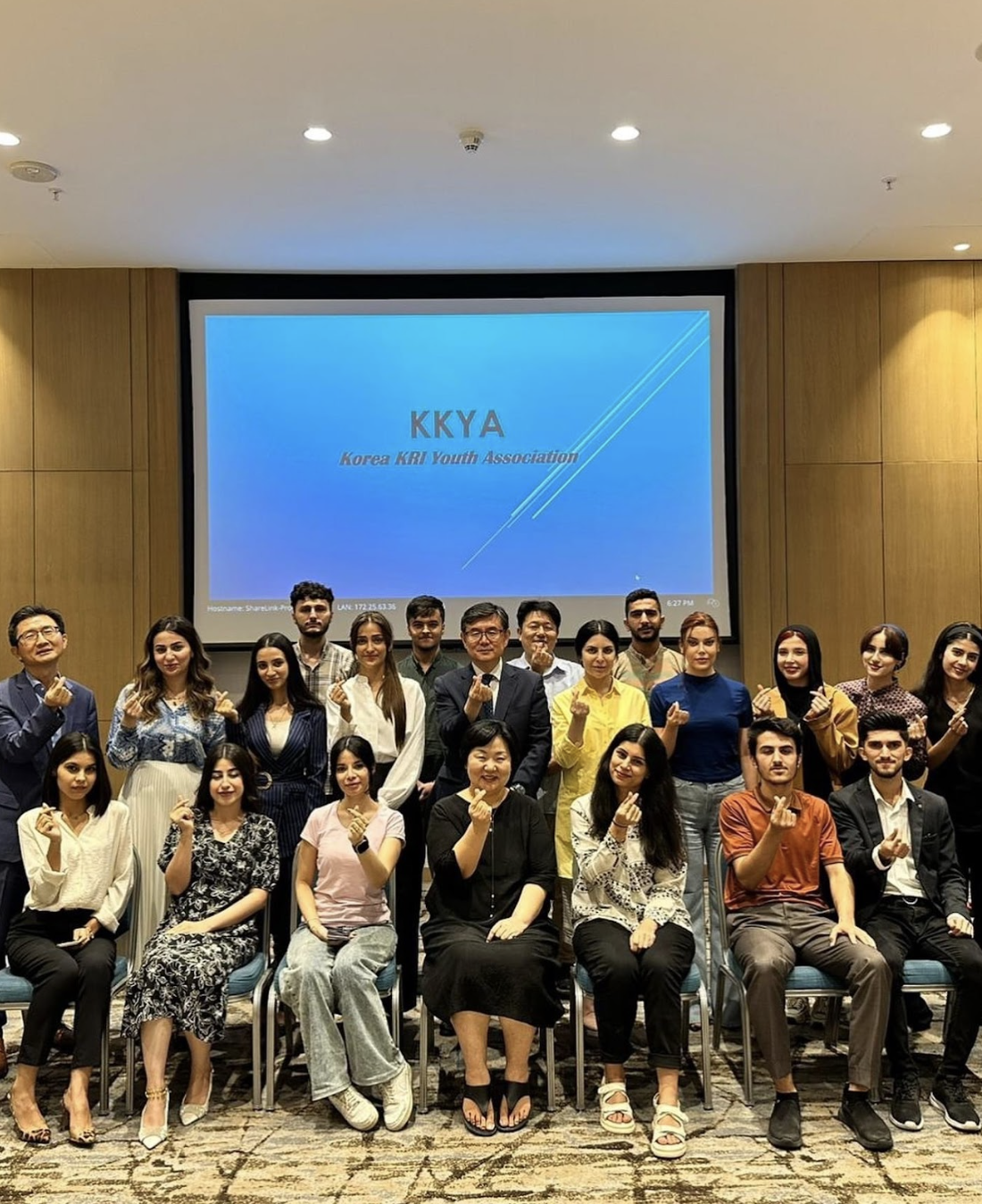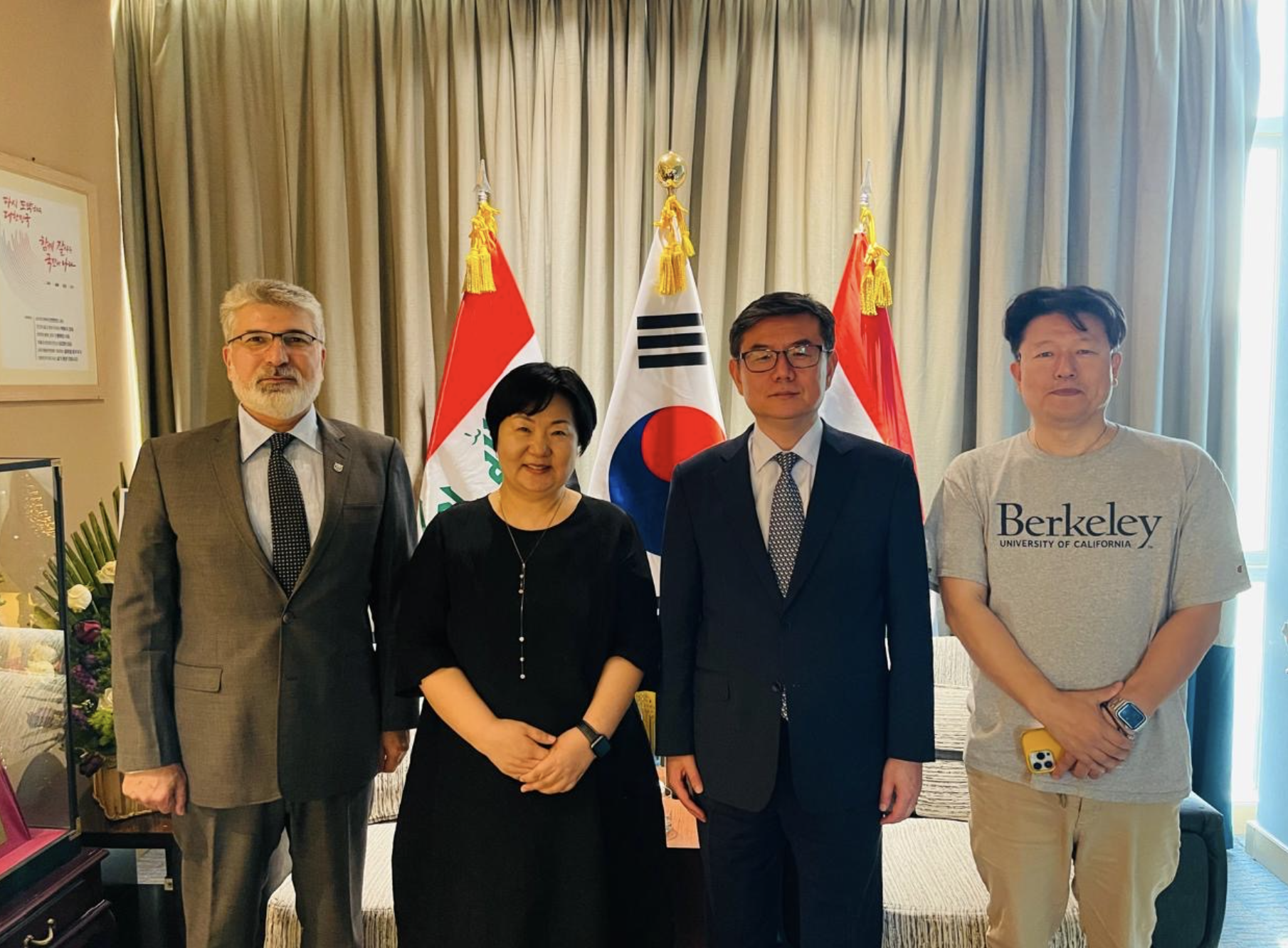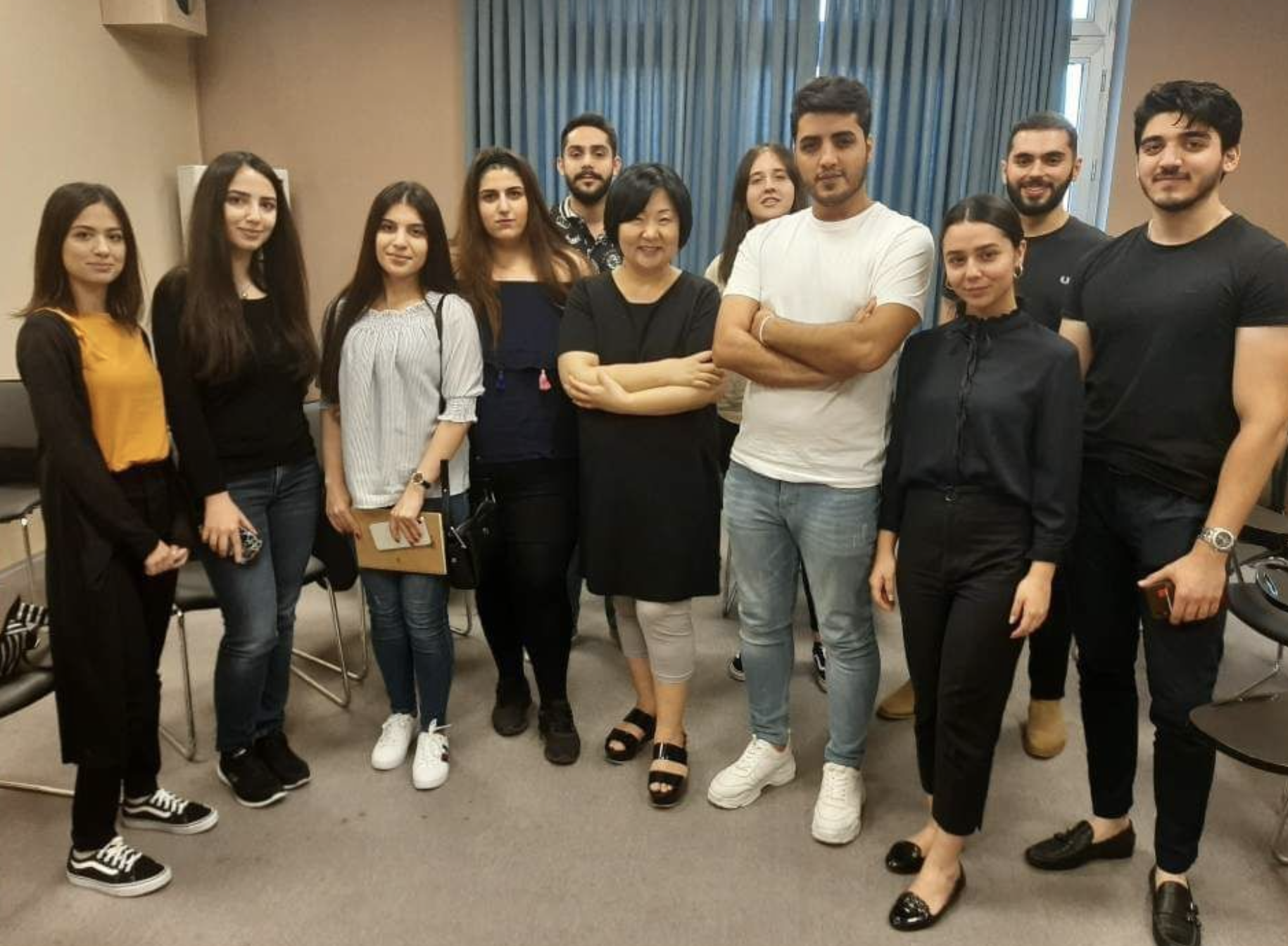Sookie Hong, a Korean-American university lecturer, businesswoman, and promoter of Korea-Kurdistan relations, shares her journey of living and working in the Kurdistan Region for 12 years.
Sookie Hong never imagined that a trip to Syria in 2008 would change the course of her life. While exploring Damascus and Aleppo, she encountered Kurdish people for the first time. Over cups of tea, laughter, and heartfelt conversations, a deep connection was forged.
“We didn’t share the same language, but we communicated heart to heart,” she recalls. “I felt an immediate connection between Koreans and Kurds, as both have histories of struggle, resilience, and longing for independence.”
This sense of kinship stayed with her even after she returned to the United States, where she spent two decades studying and later working at Samsung and Korean Air. However, over time, she and her husband began to question their daily routine.
“Life in America was work, sleep, repeat. We wanted something more meaningful,” she says.
That longing for purpose led them to make a bold decision—to leave behind their stable corporate jobs and move to the Kurdistan Region for what was supposed to be a two-year volunteer program. But fate intervened in an unexpected way.

Just before their departure in 2013, Sookie’s husband, Jay, underwent a routine health check. The results were shocking: he had colon cancer.
“Because of our decision to move to Kurdistan, we caught the cancer early. That decision saved his life,” Sookie reflects. What was meant to be an act of giving turned into an act of receiving – Kurdistan, in a way, had already given them a second chance at life.
Despite the health scare, they followed through with their plans and arrived in Erbil in August 2013. Their first impression? “It was too hot,” she laughs. But the warmth of the people soon outweighed the heat of the summer sun.
Determined to immerse themselves in Kurdish culture, they chose to live in a traditional neighborhood rather than an expatriate community.
“We wanted to experience Kurdistan fully, not as outsiders,” she explains.
Their neighbors welcomed them with open arms, bringing them food, checking in on them, and treating them like family.
Immediately, Sookie started teaching economics at SABIS University in Erbil and later at the University of Kurdistan Hewler.
Her two children, who were nine and ten years old at the time, quickly adapted to life in Kurdistan. They attended local schools, made lifelong friendships, and embraced the culture.
“They felt at home here, playing in the streets, learning Kurdish words, and forming bonds with neighbors,” Sookie recalls. Even after they moved abroad for university, Kurdistan remained close to their hearts.
“When Jay and I visited San Francisco to see our children, we all went out for brunch. My son ordered shawarma at a brunch cafe. There were plenty of fancier options, but that was the only thing he wanted,” she laughs. “That’s how much this place shaped them.”

Connecting Kurdistan with Korea
What started as a temporary move gradually evolved into a long-term mission.
Today, Sookie is the founder and CEO of Global Expert, a company that imports high-quality Korean food into Kurdistan. The venture was born almost accidentally.
“I was organizing a Korean festival, and I realized there was a demand for authentic Korean food,” she recalls. “One conversation led to another, and before I knew it, I was importing Korean goods.”
Her business, which distributes products to major supermarkets across Kurdistan and Iraq, has faced numerous challenges, from bureaucratic hurdles to strict import regulations. However, Sookie remains hopeful about the future of commerce in the region.
“Kurdistan has a strong, young workforce. With the right policies, it could attract more international companies,” she says.

But Sookie’s contributions to Kurdistan extend far beyond business. She also founded the Center for Korean Studies in Kurdistan, a hub for academic exchange between Kurdish and Korean institutions.
Through the center, she has facilitated student exchange programs, cultural events, and online lectures from Korean professors. She is particularly touched by the growing enthusiasm among Kurdish students for learning the Korean language.
“They don’t learn Korean for job opportunities – they learn it out of pure passion, their love for Korea,” she notes.
For her, the deep cultural connection between Koreans and Kurds goes beyond language.
“Both our people have a concept of jeong – a deep, unspoken warmth that connects hearts beyond words,” she explains.
She also sees parallels in their histories. “Like the Kurdish peshmerga, Korea had its own righteous army fighting for independence. We understand what it means to long for a homeland.”
Her experience in Kurdistan has only deepened her appreciation for the region’s beauty and heritage. She has explored the mountains of Barzan, the monasteries of Nineveh, and the ancient town of Amedi.
“People should know Kurdistan is not just history and politics – it is breathtakingly beautiful,” she says.
Despite the challenges of running a business in Kurdistan, from regulatory complexities to bureaucratic inefficiencies, Sookie is here to stay. She envisions expanding her educational initiatives and mentoring the next generation of Kurdish entrepreneurs.

“My goal is to return to teaching economics full-time and shape the young generations of Kurdistan,” she says.
Looking back, what started as a two-year mission has now turned into a lifelong calling. She remains deeply committed to her adopted homeland.
To the young people of Kurdistan, she offers one powerful message: “Do not leave Kurdistan. If you cannot succeed here, you will not succeed anywhere. Build something meaningful in your own land.”
For Sookie Hong, Kurdistan is no longer just a place she moved to – it is home.
Qassim Khidhir has 15 years of experience in journalism and media development in Iraq. He has contributed to both local and international media outlets.

